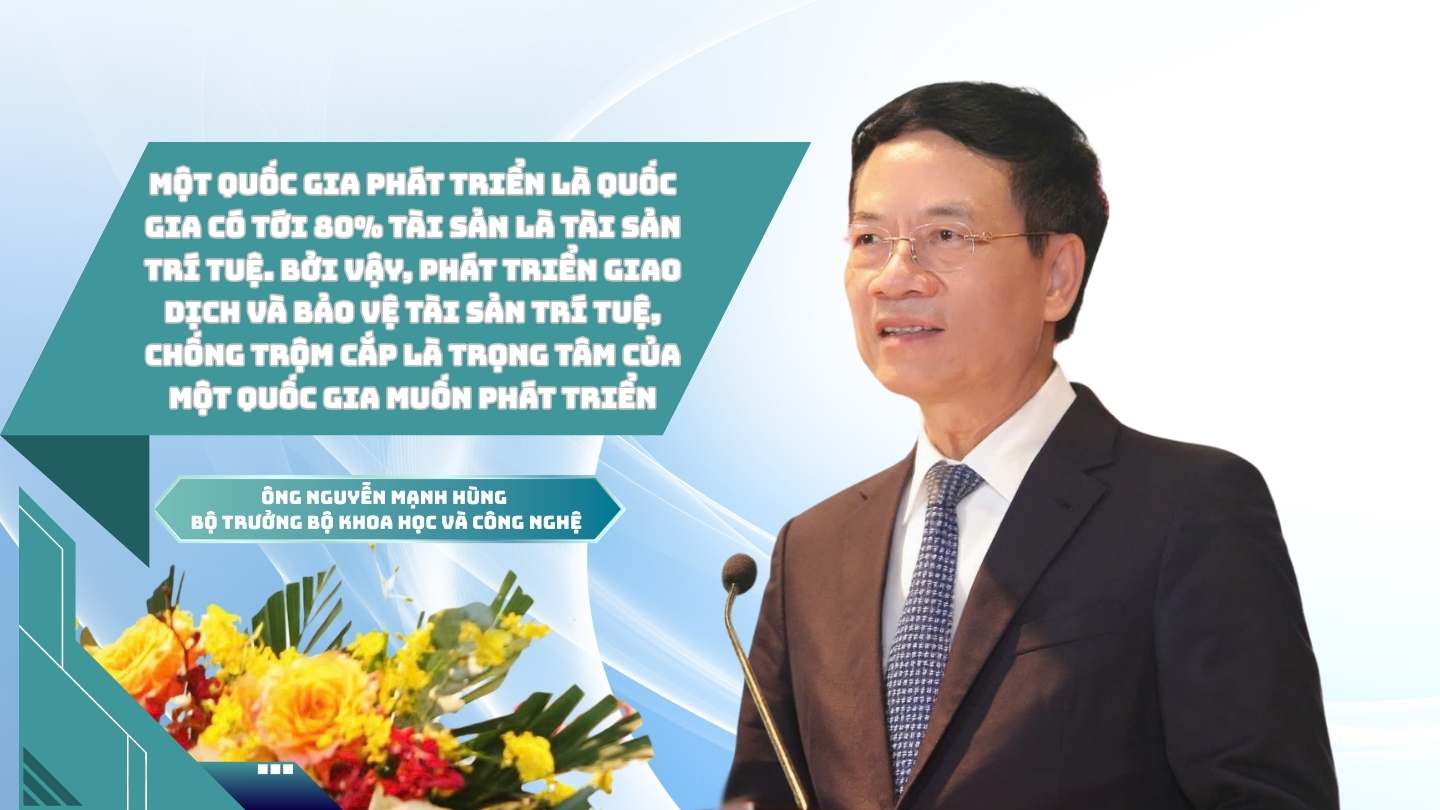
Attracting talent, creating breakthroughs with new management thinking
According to the Ministry of Science and Technology (MTS), after the Ministry's merger, a new governance mindset has been shaped: Taking science, technology, innovation and digital transformation as the foundation for national development, with the goal of turning Vietnam from a middle-income country into a high-income country.
Sharing about this issue, Minister Nguyen Manh Hung affirmed that to achieve that goal, Vietnam needs to "do bigger things", and first of all, create an environment to attract talent. The big thing is the first red carpet, the decisive magnet, the Minister emphasized.
According to him, when Vietnam has large-scale, global problems, domestic and international talents will come to it, not only to help the country develop but also to become famous and get rich from this place.
To do that, the research environment needs to meet international standards. The Minister said that from 2024, at least 20% of the science and technology budget - equivalent to about VND10,000 billion - will be spent each year to invest in building modern laboratories. Previously, each year, only about 500 billion was spent on the laboratory. Now it has increased to 20 times, Mr. Hung cited.
Along with facilities, the Minister emphasized that there must be an attractive enough financial mechanism for researchers to be able to get rich legitimately. According to the Law on Science, Technology and Innovation, product manufacturers are entitled to share at least 30% of profits when commercializing. For studies invested by businesses, the research group still receives 10-15% of revenue. If we create valuable products, scientists can earn billions, even tens of billions of VND, said Mr. Hung.
In addition, he called for strengthening the role of businesses and universities in the innovation ecosystem. The state spends about 50,000 billion VND per year on science and technology, but the private sector needs to spend 3 times - about 150,000 billion VND to achieve a total investment of about 8 billion USD/year.
Universities and research institutes cannot only rely on the state budget, but must proactively accept orders from businesses, linking research with practice. For example, if it wants to account for 1% of the national research capacity, Hanoi National University needs to reach 2,000 billion VND in research budget per year, instead of 300 billion as at present" - the Minister emphasized.
Legitizing innovation, promoting intellectual growth
Regarding intellectual property and national standards, Minister Nguyen Manh Hung recommended that intellectual property can be recorded in accounting books and mortgaged for loans. "A developed country is one with up to 80% of its assets being intellectual property. Therefore, developing transactions and protecting intellectual property and preventing theft are the focus of a country that wants to develop" - the Minister informed.
The Minister also requested strict handling of intellectual property violations, considering them as theft of material property.

Along with intellectual property, he paid special attention to standardization work - the foundation for ensuring quality and national technical sovereignty. Currently, Vietnam only has about 3.5% of the standards system needed for development. He admitted: "This is our fault. Without standards, development cannot be oriented, quality cannot be controlled and technical sovereignty cannot be maintained". The Minister requested to increase this rate to a minimum of 70% in the shortest time, towards international integration.
Regarding digital transformation, the Minister said that many localities ask for budgets to "digital transformation" but in fact only to buy equipment, build houses, and buy machinery. Digital transformation cannot be about buying hardware. At least 10% of the budget must be spent on research on changing the operating model, he requested.
He also clearly stated the principle: "A single budget spent on research must attract 3-4 VND from the enterprise, and a single spent must generate 10 VND in revenue from commercialization".
An unprecedented task is that the Ministry of Science and Technology will take the lead in developing many draft laws in 2025, including: Law on Digital Transformation, Law on Intellectual Property (amended), Law on High Technology, Law on Technology Transfer... The goal is to create an open legal corridor for research, innovation and technology transfer.
In addition, innovation centers at ministries, branches and localities will be implemented synchronously, in order to realize the commitment of the science and technology sector to contribute at least 5% to GDP growth. Of which, science and technology contributed 1%, transformation was 1 - 1.5%, and innovation was 3%.
We need to work harder, do bigger things, to bring Vietnam into a stage of development based on intelligence, technology and creativity, the Minister concluded.











